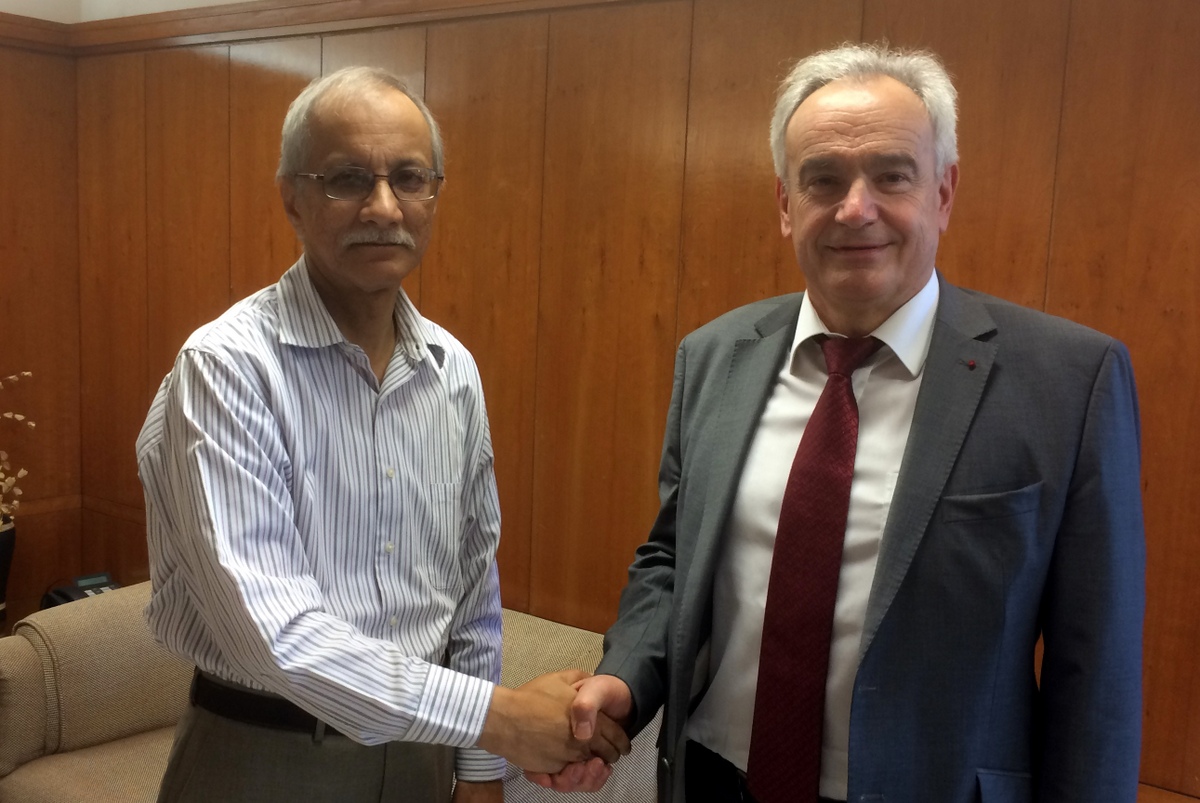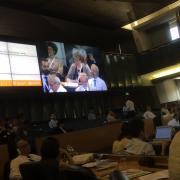
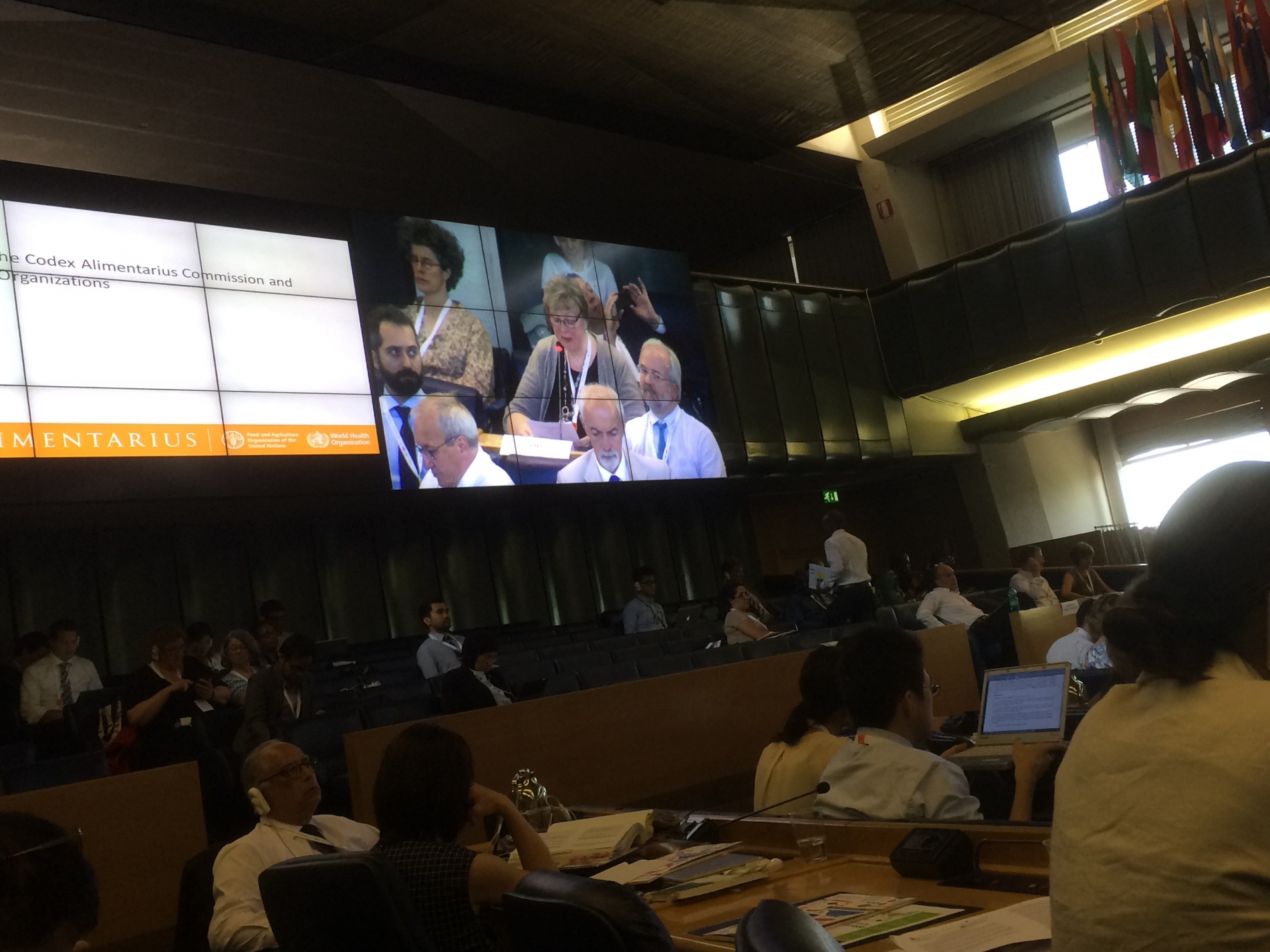
Before 123 Member States of the Codex Alimentarius, and within the framework of relations between the Codex Alimentarius Commission and other international organisations, Monika Christmann emphasised that the OIV was participating in several Codex projects under way and that it was actively involved, particularly in discussions concerning the provisions relative to food additives that appear in the General Standard for Food Additives (GSFA). She insisted on the need to ensure consistency between the GSFA provisions on food additives used for grape wines and OIV recommendations. Furthermore, she declared that the OIV was looking to collaborate closely with the Codex, as well as with the Joint FAO/WHO Expert Committee on Food Additives (JECFA), in order to avoid the duplication of work and the establishment of divergent international standards – given that a number of references to Codex standards have already been included in OIV documents.
Monika Christmann also signalled that the OIV was continuing its active collaboration with the FAO for the purposes of developing global statistics on the vitivinicultural sector.
The OIV President concluded that it was necessary to pursue cooperation and coordination with regard to activities of common interest to the OIV and the Codex.
Download the document concerning the OIV communication [FR] [EN]
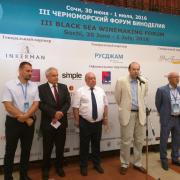
Placed under the patronage of the OIV, this event was put on within the framework of the Organization of the Black Sea Economic Cooperation (BSEC), of which Russia assumed the chairmanship in 2016.
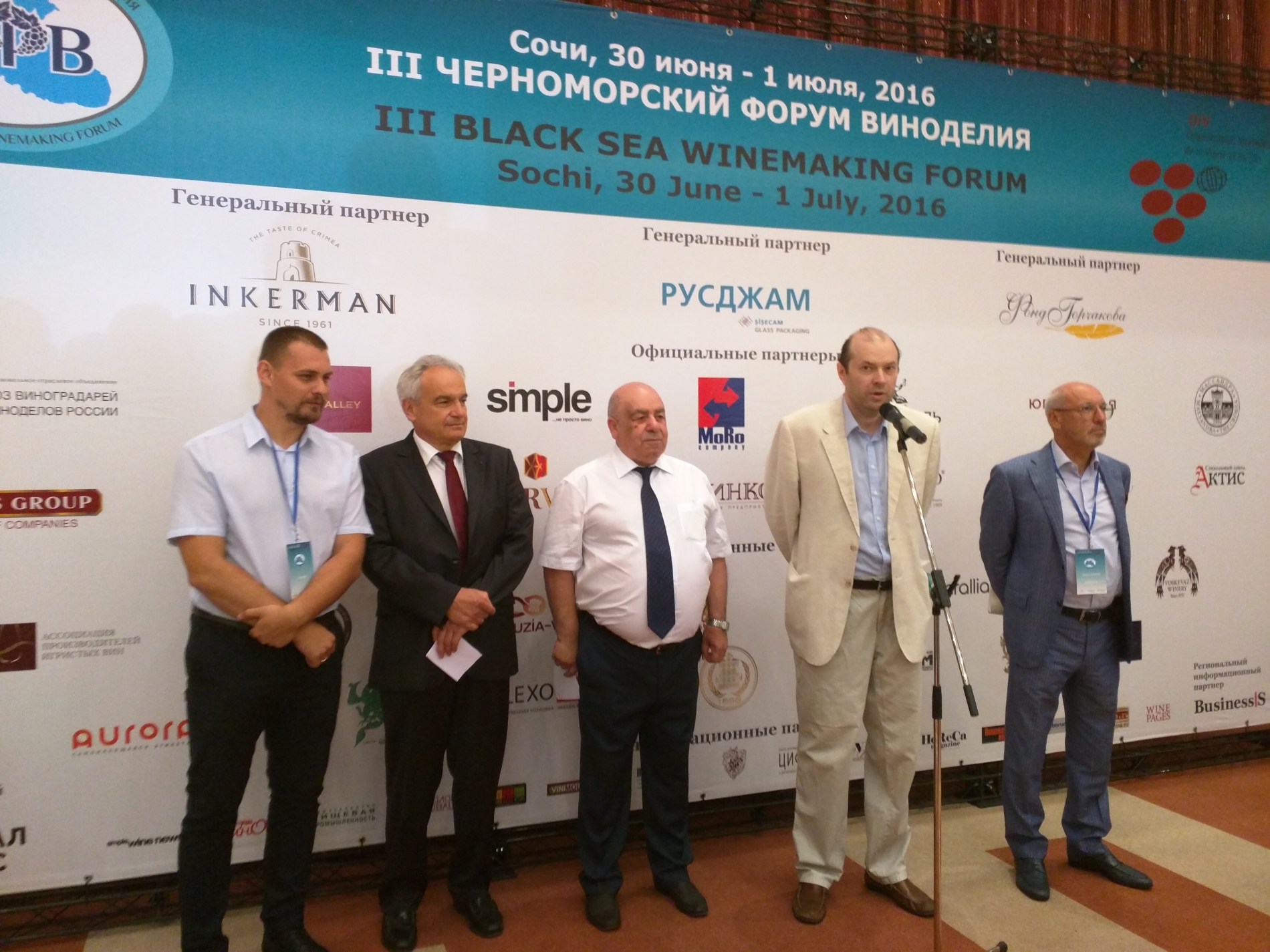
It gathered together around 150 actors in the vitivinicultural sector and wine producers – with distributors, oenologists and sommeliers from 10 or so countries.
During a conference organised on the theme of prospects for cooperation (both technical and economic) in the vitivinicultural sector all around the Black Sea region, the Director General of the OIV, Jean-Marie Aurand, gave a presentation of the major trends in vitiviniculture on a global scale – with a particular focus on the main developments in consumption and its recent evolutions.
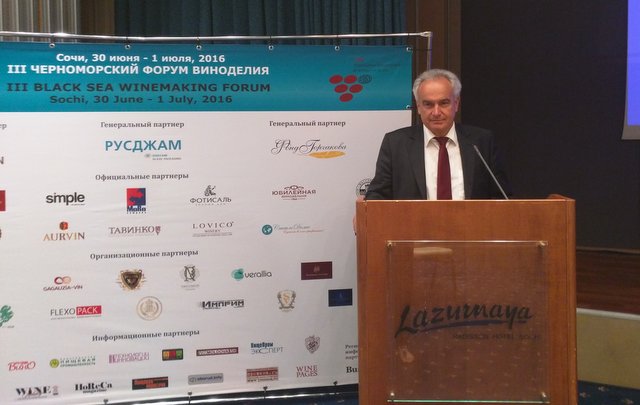
A presentation of wines organised as part of the forum brought together around 60 companies.
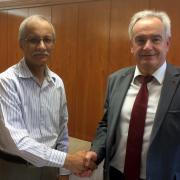
This culminates an important process in developing food standards for food additives that began about three years ago.
FSSAI has also finalized a list of food additives with respect to alcoholic beverages in alignment with International Organization for Vine and Wine (OIV) Standards. With this FSSAI has achieved a major landmark in setting of the standards for various foods in the country.
Jean-Marie Aurand, the OIV Director General, who met last March in Delhi the chairman of FSSAI, Mr Ashish Bahuguna expressed his satisfaction to see that India, who joined the OIV in 2011, will be in line with the international standards established by the OIV. He also mentioned that he is convinced that the fruitful exchanges he had with different national Authorities and professional in India allowed this alignment and will allow a better understanding and involvement of India in OIV activities.
